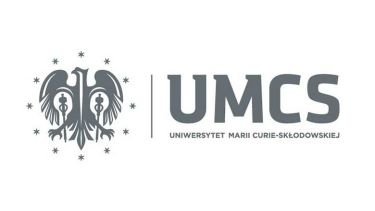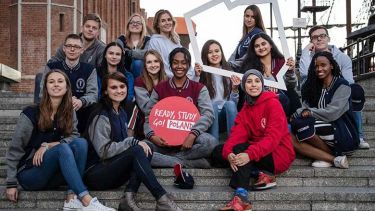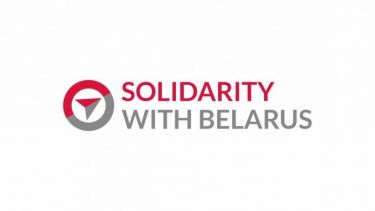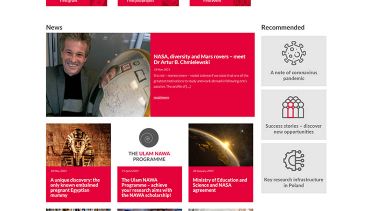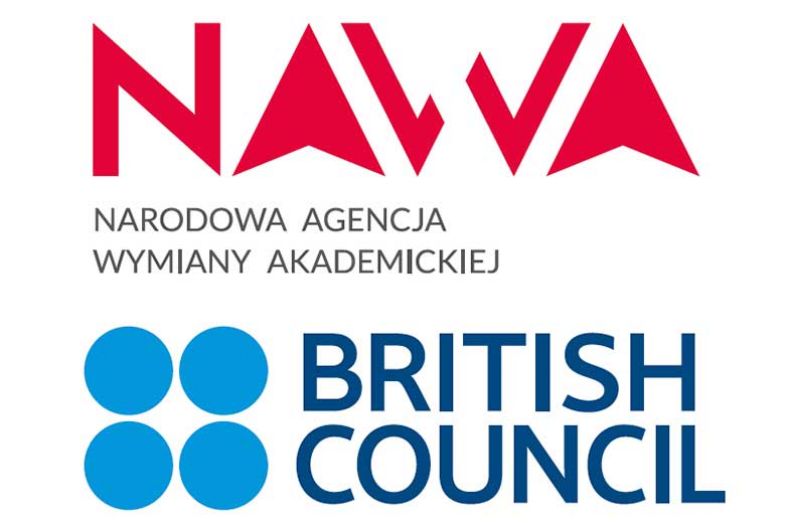
NAWA and the British Council shared key findings about Polish higher education at Going Global
Since the launch of the new law on science and HE in 2015, Poland has had a strong governmental and institutional emphasis on internationalising HE, science and research with a “focus on co-operation and development”.[1] This led to the establishment of NAWA, the Polish National Agency for Academic Exchange, in 2017, and now, along with the Ministry of Science and HE, it encourages international collaborations by providing the funds for Polish institutions that undertake joint second-cycle studies with foreign institutions.[2]
According to the British Council report The Shape of Global Higher Education: International Comparisons with Europe, Poland is the sixth largest HE system in the EU and one of the countries that “appear to have developed their TNE/IPPM policy frameworks and have the potential to emerge as key players”.[3]
During the British Council’s Going Global 2019 conference in May, Zofia Sawicka, the deputy director of NAWA, shared some of the most significant features of the Polish HE internationalisation process, describing Poland-specific challenges and opportunities linked to the mobility of students and researchers. These include the need for institutions to diversify the range of countries from which they attract students so that the Polish system is not overly reliant on one market; currently, more than half of all international students at Polish institutions are from the Ukraine.[4] Similarly, more research collaborations are needed, and a greater emphasis should be placed on “brain circulation” to facilitate the return of top-class academics with new international research networks and experience. Therefore, one of NAWA’s goals is to attract more foreign students, from a wider range of countries, so that a more diverse set of international connections can be made.
According to a survey conducted among international students in Poland in November and December 2018 the general satisfaction with studies was rated very highly – 79 per cent of those who participated in the survey evaluated the university classes as good or very good. Thanks to the variety of scholarship programmes, such as Banach, Lukasiewicz, Anders and the recently launched Poland My First Choice, which is dedicated to the citizens of developed countries, NAWA is able to attract top students from diverse nations.
NAWA currently sees a strong imbalance of the top universities in a few regions on the global HE map – and the ability to attract talented researchers from around the world on a highly competitive basis allows these institutions to further strengthen their capacity. In order to boost the brain-circulation process and meet the challenges of internationalising research at Polish universities, NAWA offers the Polish Returns Programme, which not only enables Polish academics to go abroad, but also gives them the opportunity to return to their home country and continue their research in accordance with the best international standards.
For scientists, Poland could offer a great opportunity to begin or develop their research careers. Between 2005 and 2018, Poland’s research doubled and it is now a leader in scientific publications produced in Central-Eastern Europe. The majority of the papers were from the field of medicine which submitted 11,980 for publishing, with engineering following closely with 10,035 and astronomy in third place with 8,292.
Poland’s efforts to attract more international talent include initiatives such as The Ulam Programme, announced in 2019, which enables foreign academics to conduct visits to Polish HE and research institutions lasting from 6 to 24 months. Poland already offers plenty of the infrastructure, innovations and grants that Western universities boast, but what it really needs is the exchange of experience and knowledge. This aligns with The Shape of Global Higher Education report, which states that: “There is a strong positive relationship between inbound student mobility and quality of research – an established research culture relies on competition for the best students. There is a strong positive relationship between international research collaborations and the quality of the produced research, in terms of field weighted citation impact (FWCI). The more international the research is, the higher its impact.”[5]
The flow of international students and the mobility of researchers will continue to grow over the coming decades. In our ever-more demanding and competitive world, it will be crucial for international HE practitioners, academic teachers, university management and policy regulators to recognise a bigger picture, hence take a holistic approach to this process. As the report’s co-authors Janet Ilieva, Vangelis Tsiligiris and Pat Killingley summed up: “The three pillars of international higher education – international student mobility, international research collaboration and transnational education – are interconnected and create synergies and complementary benefits for the parties involved.”[6]
Collaboration between NAWA and the British Council was initiated in 2018 with the general purpose of supporting the institutional links between the UK and Poland within HE. This includes the focus on academic mobility and improving the quality of academic teaching delivered in English at the Polish universities, which is an important part of the Polish universities’ offering as there are more than 800 programmes taught in English. The British Council already has expertise as a local provider of the Academic Teaching Excellence course, delivered in Poland since 2014 (until now, there have been 12 editions at 7 Polish universities). In addition, this year the organisation is launching Researcher Connect training courses for the academics wishing to develop their skills in the context of international collaboration. The results of the institutional partnership include NAWA’s contribution to the British Council report by providing the key data concerning Poland’s HE landscape as well as NAWA’s participation in the Going Global session titled The Shape of Global HE.
For more information about studying in Poland, find out more about the Polish National Agency for Academic Exchange (NAWA).
[1] Report, p.13.
[2] More information about Programmes for Institutions can be found at https://nawa.gov.pl/en/institutions
[3] Report, p.6; TNE: transnational education, IPPM: international programme and provider mobility
[4] Statistics Poland data, 14.06.2019
[5] Report, p.6.
[6] https://www.universityworldnews.com/post.php?story=20190527124222217


